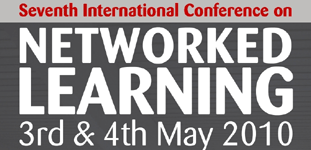

Learning Networks for Lifelong Learning: An Exploratory Survey on Distance Learners' preferences
Adriana J. Berlanga, Ellen Rusman, Jannes Eshuis, Henry Hermans, Peter Sloep
Open University of The Netherlands, Heerlen, Netherlands
Abstract
Distance learners have fewer face to face contact opportunities with staff and peers than learners in regular settings. A Learning Network might facilitate social interaction and knowledge sharing for these learners thereby helping them to overcome isolation and dropout. In this paper we argue that social network sites functionalities can provide insights regarding how Learning Networks for distance learners should be designed to foster social bonding and knowledge exchange. First, the paper briefly presents a social network site (MyOU.nl) of the Open University of The Netherlands (OUNL), which was implemented as a pilot to explore how social network tools and approaches can be combined. Thereafter, the paper presents the results of a survey (N=353) conducted to investigate the usage of social network sites of learners enrolled in the OUNL, who are usually adults, combining work, private obligations and study. The survey investigated OUNL learners' social network sites usage, the design features they value most, and the features they would like to have in a Learning Network designed to support them to develop their competences. Results show that profile social network sites are the most popular amongst OUNL learners. Although most learners are not actively participating in these sites, they nevertheless support the idea of a dedicated social learning network for their study. However, the vast majority does not see social network sites useful to share knowledge and expertise with others, or perceive the usefulness of these sites for learning. Results also show that learners have a self-centred, goal-oriented attitude, so they do not consider it vital to share their knowledge, find peers or work collaboratively. Their focus is on developing their competences as fast and efficient as possible. Therefore, they seem to prefer functionalities and tools for self-assessment, resources suitable for self-study and contact with experts, rather than functionalities for creating communities, contacting peers to work collaboratively, sharing resources, sharing knowledge using social tools, such wikis or blogs. The paper discusses these findings and provides advice to implement a Learning Network for distance learners. Finally, conclusions and future work are briefly described.
| About NLC | Welcome Messages| Acknowledgwments | Conference Proceedings| Keynote Speakers| Index of Presenting Authors| Contact |